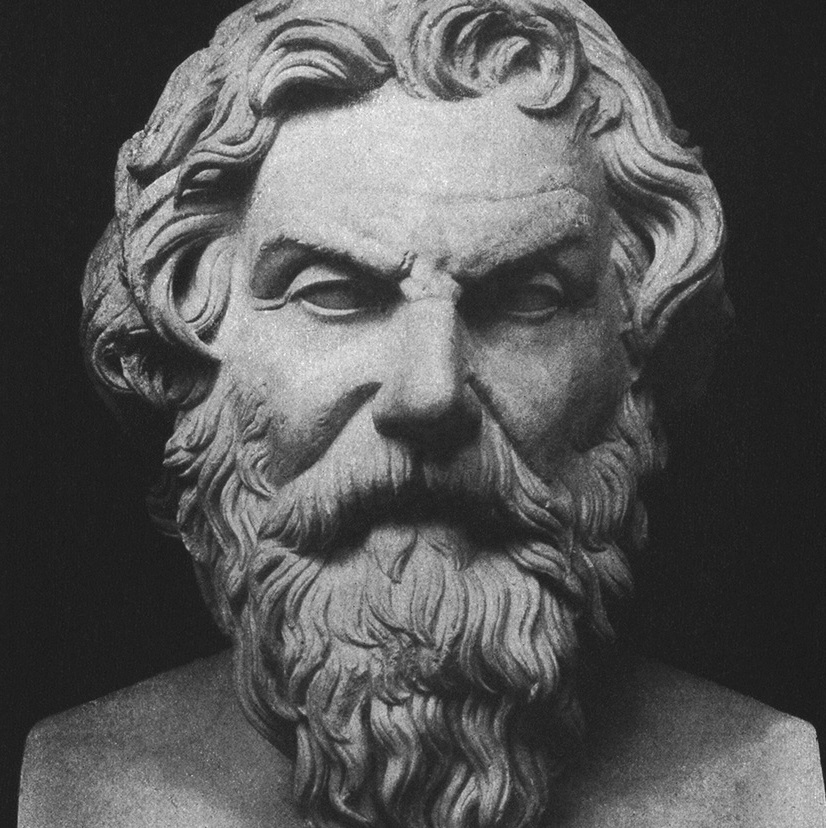The following essay/meditation is from my sister project, Pneuma. If you’re interested in what you read and would like to hear the podcast, visit pneumameditations.com or download it on any of your favorite podcast platforms.
Hello my friends, and welcome to this episode of Pneuma.
Not quite a week ago, in my prefatory remarks for my episode on “Sunning yourself like a Cynic”, I expressed my gratitude for your patronage. At that time, this channel had accumulated over 9,000 downloads–a number by which I was at once surprised, tickled, and, most of all, thoroughly humbled. Today, a week later, we’ve surpassed 10,000 downloads (and are well on our way toward 11,000)–a milestone far beneath which I had originally fixed even my loftiest hopes.
I thank you, from the bottom of my heart, for helping me to exceed them. Together, perhaps, we might set our aims even higher–all in the name of wellness, intelligence, felicity, and love.
I want to remind you of the two new series on which I’m working: “Jog Your Mind”, in which I share with you the thoughts that fill my head when I’m on my morning run, and “Fall Asleep with me”, in which I read to you an excerpt from a timeless work of literature to which you can fall asleep. If you’re an insomniac, I urge you–give this series a listen. Your affliction will have met its remedy, and your rest will be restored.
There’s one more series on which I’m working–still in its infancy, still in its earliest stage of conceptualization and development. Once brought to a state of greater refinement and maturity, however, I’ll let you know all about it. If all goes according to plan, it will involve a weekly conversation with someone to whom I’m very intimately linked.
In today’s episode, we’re going to talk about worldly possessions. By “worldly possessions”, I mean those material things, those countless gadgets, trinkets, and tangible objects everywhere surrounding you, by which your house is filled, your office cluttered, your daily tasks facilitated, your body adorned, your wealth exhibited, your success displayed, your professional prestige made known, and your personal worth, in many instances, at once measured and defined.
Among worldly possessions, there are some without which we can’t easily live. Think, for yourself, of the most essential items of which you make use each and every single day. For me, those items might include my fancy Saucony running shoes, my dark blue Levi Jeans, my clever little iPhone 13, my somewhat aged though not yet completely dysfunctional MacBook laptop, and my even more aged 2004 Honda Civic.
Beyond those few things that we would designate as “essential”, there are, of course, many others. Maybe a pair of diamond earrings with which you embellish your ears or a massive, 4K television on which you watch your football games each Sunday would be included on this list. These are the things whose absence might pain, but probably wouldn’t incapacitate you.
The powerful influence that “worldly possessions” wield over us (no matter how austere, saintly, and unsusceptible to such a force we might fancy ourselves to be) is something with which philosophers have contended since the very beginning. Some have not only resisted, but scorned and rejected them flat out. The most devout of these people became, upon the advent of Christianty, what we might now call ascetics.
Others, less abstemious, and more indulgent and disposed to the relief of their hardships and the advance of their comforts, took a different approach. They not only embraced, but relished their worldly possessions, to whose vast and sumptuous treasury, they thought only of adding more. To these people, against whose acquisitiveness and gluttony for gain we might recoil, the name, “hedonist” was applied.
On one side, we have the hedonist. On the other, the ascetic.
Two Greek philosophers represent these contrary views:
On the one side, we find Aristippos the Cyrenaic. He was a hedonist–a lover of fine wine, elegant feasts, and unbashful women. On the other, we find Antisthenes, an ascetic Athenian of mixed blood.
Curiously enough, both of these men (along with their more famous contemporary, Plato) were students of Socrates.
Aristippos, originally from Cyrene–a city located on the bustling coast of modern-day Libya–traveled all the way to Athens in order to take his instruction from the master, the renowned “gadfly” of Greece, at whose acuity of intellect, indefatigability for conversation, incorruptibility of soul, and supreme dialogic power, all the literate world marveled.
Aristippos, uniquely marked by having had the opportunity to sit at the feet of such a master, appears to have been little impressed by the lessons of which he was but one of a few lucky recipients. Upon Socrates’ death (to which, mind you, a democratic assembly consigned him), Aristippos diverged from his teacher, and, now with a following of his own, decided to forge his own way. He abandoned all of Socrates’ stuffy, prudish, ethical teachings, and established his own school, the Cyrenaic school, according to whose bold doctrine pleasure, rather than courage, wisdom, justice, or virtue, was to be held as the greatest of all goods.
Aristippos was no abstract academic: he lived precisely as he preached. He indulged every sensual pleasure, gratified every passing desire, watered every thirst, leased out his love in indiscriminate ways, and, most shocking of all–at least for a so-called “Socratic”–sold his wisdom on the open market. He became a teacher for hire, a true corrupter of the youth!
At the core of his philosophy, however, was not just the enjoyment of pleasure (on which, rest assured, he was insistent), but the exercise of self-possession and control. He responded to the critics who accused him of an unseemly libertinism by saying that “It is not abstinence from pleasures that is best, but mastery over them” that is most important.
And so, when it came to the topic of worldly possessions, Aristippos’ motto was, “I possess, but am not possessed”.
Again: “I possess, but am not possessed”.
And yet, by possessing, how easily do we become possessed! That which we possess, be it our smartphone, our laptop, our Louis Vuitton bag, our Mercedes coupe, or our spacious house, is always ready to consume us.
That path, on which Aristippos shines his guiding light, is one that you could choose–darkened by danger though it may be.
In response to Aristippos, we turn to another Socratic philosopher, Antisthenes.
His viewpoint is easy to remember, for it was antithetical (antithetical…Antisthenes, they sound alike, no?) to that of Aristippos.
A forerunner of Cynicism, a grandfather to Stoicism, Antisthenes was a more faithful disciple of Socrates. So committed was he, in fact, to history’s greatest sage, that he walked nearly six miles, each and every day, from the distant Piraeus (a harbor outside the city to which, at the very outset of Plato’s Republic, Socrates is said to have descended) to the center of Athens, where “classes” in the agora would be underway.
Woven of a stronger moral fiber, Antisthenes bound himself tightly to Socrates’ ethical teachings. He believed that virtue, not pleasure, was the summum bonum, or the ultimate good, to which we should all aspire and orient our lives. In pursuit of virtue, he thought, one should disencumber himself of all worldly goods. They are mere hindrances that he’s weighed down by, stumbling blocks with which the path to a higher, nobler end is strewn.
His prescription was an ascetic life lived in accordance with nature and virtue.
If you’ve listened to my other episodes, in which the philosophy of the Stoics is explained, this will sound very familiar.
Virtue was to be valued and promoted above all else. Pleasure, contrarily, was to be despised. Antisthenes thought it was not only unnecessary, but positively harmful to the formation of a virtuous life.
And what do you think he had to say about worldly possessions?
Antisthenes, in response to his former classmate Aristippos, said the following: “I do not possess, in order not to be possessed”.
Again: “I do not possess, in order not to be possessed”.
The one, Aristippos, winks at the probability of his over-indulging, while assuring us that his self-mastery and his temperance will be strong enough to moderate his immoderate desires. This, I think, is a healthy approach, so far as it goes. It’s certainly more hospitable to the modern world in which we live, but it requires of its practitioner constant diligence and unfailing temperance to avoid becoming possessed.
“I possess, but am not possessed”.
The other, Antisthenes, perhaps more candid about the flaws inherent to human nature, doesn’t trust himself. He knows better than to permit himself so much freedom, so much dangerous license. From the temptation of pleasures, from the threat of being possessed by possessions, he abstains completely. He’ll have nothing to do with them.
“I do not possess, in order not to be possessed”.
In closing, I ask you: with whom do you side? Aristippos, the hedonist Cyrenaic? Or Antisthenes, the Athenian ascetic? In what way should we view our worldly possessions? Should we risk the possibility of their possessing us? Should we indulge in them just up to that point beyond which we would become, without any hope of being rescued, utterly consumed? Have we the self-control and the unflappable willpower to accomplish this demanding feat?
Or should we begin the process of detachment from our worldly goods? Should we uncouple ourselves, slowly, at first, but deliberately and assiduously, from their captivating presence? Should we liberate ourselves from their firm, tyrannical grip? Should we, in their place, fill the void left behind with virtue? Should we think less of our possessions, and more of our souls, and the souls of our friends, and the souls of the human race? Should we adorn ourselves not with expensive jewels and jeans, but with a virtuous character of which we can never be disrobed?
I’ll leave it for you to tell me. Send me an email (pneuma.finneran@gmail.com) or leave a comment explaining your view. If well-argued, I’ll feature it in my next episode.
And, with that, we’ve reached our parting hour.
Remember to subscribe and leave a five-star rating.
Farewell, from Pneuma.

